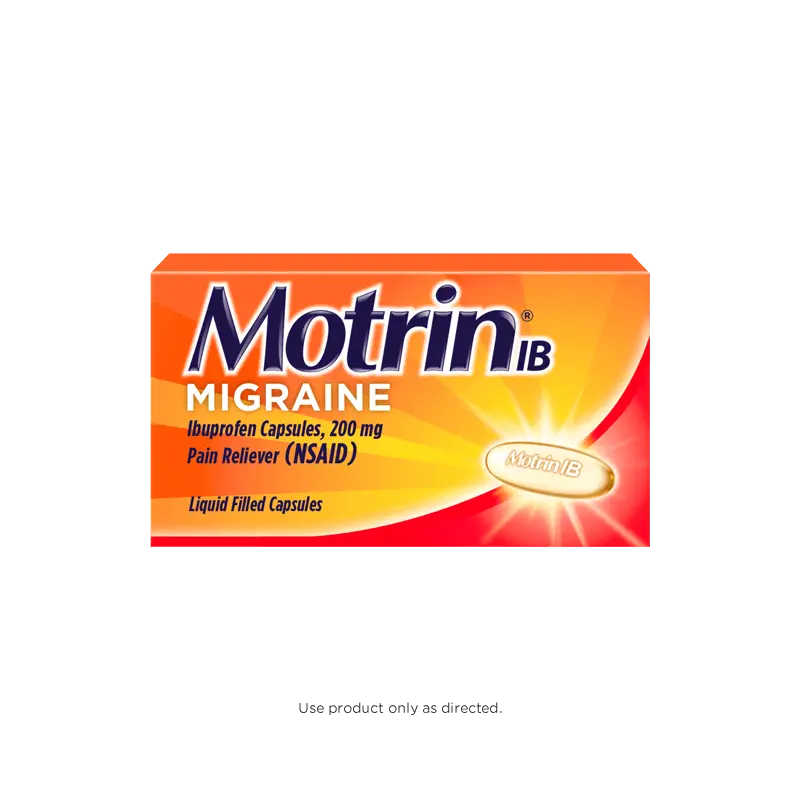We deliver to you every day from 7:00 to 23:00
The best discounts this week
Every week you can find the best discounts here.
What’s the Best Painkiller for Migraines with Aura?
Migraines with aura can be a challenging and debilitating condition, affecting millions worldwide. The aura phase, which typically precedes the headache, involves visual disturbances such as flashing lights, zigzag lines, or even temporary loss of vision. Migraines with aura are often accompanied by intense throbbing pain, nausea, and heightened sensitivity to light and sound. Finding the best painkiller for these migraines can significantly improve your quality of life.
In this article, we’ll explore various pain management strategies for migraines with aura, discussing both over-the-counter and prescription medications, as well as natural treatments that may help.

Understanding Migraines with Aura
Before diving into pain management, it’s essential to understand what makes migraines with aura unique. Aura refers to a group of neurological symptoms that precede or accompany the migraine headache. These symptoms often last for 20-30 minutes and include visual disturbances, numbness, or speech difficulties. Once the aura phase passes, the migraine headache begins, usually lasting from several hours to a couple of days.
The pain experienced during a migraine with aura can be severe and often interferes with daily activities. Because the symptoms are different from typical headaches, they require specific treatment approaches.
1. Over-the-Counter (OTC) Painkillers
For many individuals with migraines, over-the-counter (OTC) painkillers are the first line of defense. These medications are effective in reducing the intensity of the headache and may even help prevent the migraine from progressing to full-blown pain.
Common OTC Painkillers for Migraines:
-
Ibuprofen (Advil, Motrin): Ibuprofen is one of the most commonly used OTC painkillers for migraines. It works by reducing inflammation, thus alleviating pain. It’s especially effective when taken early during the aura phase.
-
Aspirin: Aspirin is another option that works similarly to ibuprofen by reducing inflammation and relieving pain.
-
Acetaminophen (Tylenol): Acetaminophen is a milder option that can provide relief for less severe migraines.
While these medications can be effective, they may not always work for more intense migraines with aura, and they should not be used excessively.

How to Use OTC Painkillers Effectively:
-
Take medication at the first sign of aura or headache for best results.
-
Do not exceed the recommended dosage to avoid potential side effects.
-
Avoid taking OTC painkillers too frequently, as it can lead to medication overuse headaches.
2. Triptans: Prescription Medications for Migraines
When OTC medications are not effective, triptans may be recommended by your doctor. Triptans are a class of medications that specifically target the serotonin receptors in the brain, which are involved in migraine attacks. These drugs are highly effective in stopping a migraine once it has started, and they may also reduce the intensity of the aura symptoms.
Common Triptans for Migraines with Aura:
-
Sumatriptan (Imitrex): Available in tablets, nasal spray, and injection forms, sumatriptan is one of the most prescribed triptans for migraine treatment.
-
Rizatriptan (Maxalt): Known for its fast onset of action, rizatriptan is effective in relieving migraine pain and aura symptoms.
-
Zolmitriptan (Zomig): Another triptan that works well for migraine relief, zolmitriptan is available in both tablet and nasal spray forms.
Triptans are most effective when taken early in the migraine attack, and they can significantly reduce the duration and severity of pain. However, they are not suitable for everyone, particularly those with certain cardiovascular conditions.

3. Ergotamines: Another Prescription Option
Ergotamine medications are another class of drugs that can be used for migraine relief. These medications work by constricting blood vessels in the brain, which helps alleviate the migraine headache. They are typically prescribed when triptans are not effective.
Common Ergotamine Medications:
-
Ergotamine tartrate: This drug is usually available in tablet form and is often taken at the onset of migraine symptoms.
-
Dihydroergotamine (DHE): DHE is available as a nasal spray or injectable form, and it can be effective for more severe migraines.
While effective, ergotamine medications should not be used frequently due to the risk of side effects such as nausea and cardiovascular issues.
4. Preventive Medications
For individuals who experience frequent migraines with aura, preventive medications may be recommended. These medications are designed to reduce the frequency and severity of migraines, including those with aura.
Common Preventive Medications:
-
Beta-blockers: Medications like propranolol (Inderal) help reduce the frequency of migraines by stabilizing blood pressure and reducing the risk of migraines.
-
Calcium channel blockers: Verapamil is one example, which helps prevent migraines by affecting blood vessel dilation.
-
Antidepressants: Certain antidepressants, such as amitriptyline, have been shown to help reduce the frequency of migraines by balancing brain chemicals.
Preventive medications are typically taken daily and can be beneficial for people who suffer from multiple migraines each month.
5. Natural Remedies for Migraine Relief
In addition to medications, several natural remedies can help alleviate migraine pain and reduce the severity of the aura.
Effective Natural Remedies:
-
Magnesium Supplements: Magnesium deficiency has been linked to migraines, so taking magnesium supplements may help prevent or reduce the severity of migraine attacks.
-
Essential Oils: Peppermint and lavender oils are often used in aromatherapy to relieve migraine pain and aura symptoms. Apply them to the temples or diffuse them in your home.
-
Acupressure and Acupuncture: Both techniques target specific pressure points in the body to relieve migraine symptoms and improve circulation.
While these remedies may not completely replace medications, they can complement other treatments and provide some relief.
6. Lifestyle Changes to Prevent Migraines
Adopting certain lifestyle changes can also play a significant role in managing migraines with aura. Identifying and avoiding migraine triggers is crucial in preventing future attacks.
Helpful Lifestyle Tips:
-
Maintain a regular sleep schedule: Poor sleep patterns can trigger migraines. Aim for 7-8 hours of sleep per night.
-
Stay hydrated: Dehydration is a common trigger for migraines, so make sure to drink plenty of water throughout the day.
-
Eat regular meals: Skipping meals or fasting can trigger migraines. Ensure you’re eating balanced meals at regular intervals.
-
Reduce stress: Stress is one of the leading triggers for migraines. Incorporate stress-reducing activities like yoga, meditation, or deep breathing exercises into your routine.
By making these changes, you can reduce the frequency and intensity of migraines over time.
FAQs About Migraines with Aura
1. Can I use painkillers during the aura phase?
Yes, painkillers, especially OTC pain relievers like ibuprofen or aspirin, can be effective when taken during the aura phase, before the headache becomes severe.
2. Are triptans safe for everyone with migraines?
Triptans are generally safe for most people with migraines, but they should be avoided by those with certain cardiovascular conditions. Always consult with a healthcare provider before starting triptans.
3. Can natural remedies replace prescription medications for migraines?
While natural remedies like magnesium supplements and essential oils can help reduce the severity of migraines, they may not fully replace prescription medications, especially for frequent or severe migraines with aura.
4. How can I prevent migraines from occurring?
Preventive measures like lifestyle changes (sleep, hydration, diet), taking preventive medications, and identifying triggers can significantly reduce the frequency of migraines.
Conclusion: Choosing the Best Painkiller for Migraines with Aura
Migraines with aura are a complex condition, but there are many effective painkillers and treatments available. From OTC painkillers and triptans to natural remedies and preventive medications, the right solution depends on the severity and frequency of your migraines. It’s essential to work with your healthcare provider to find the best approach tailored to your needs.
For more information on managing migraines and other health concerns, visit DUYTHIN.DIGITAL.











